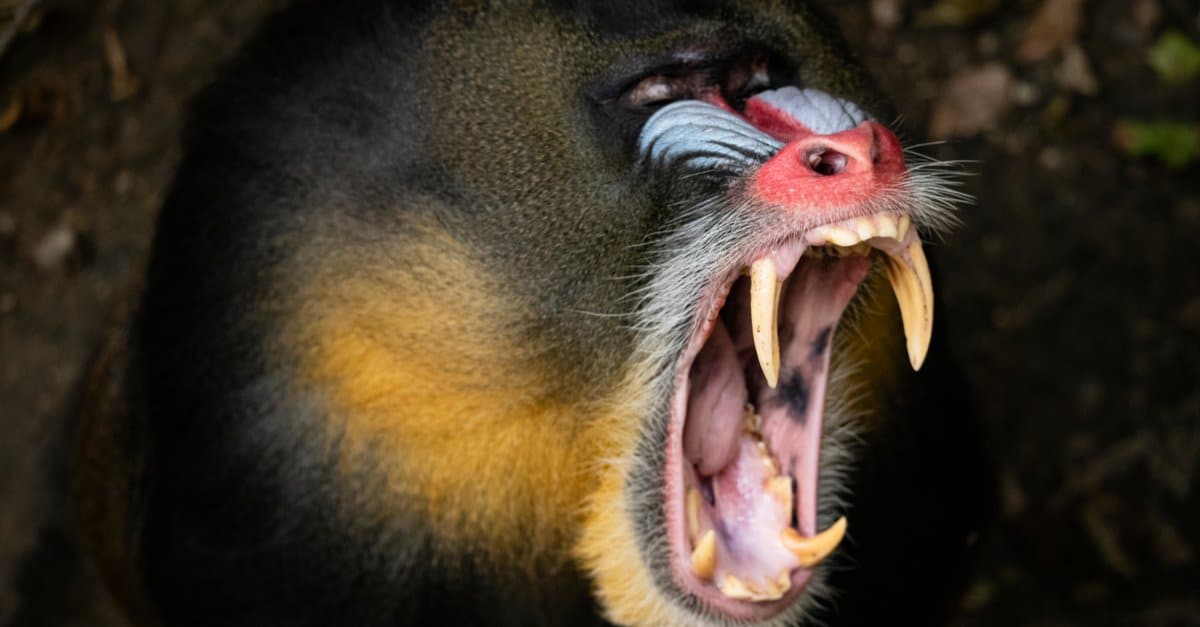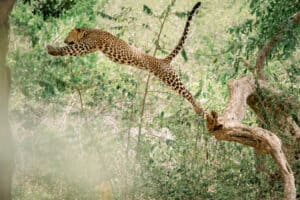Monkeys are wild animals, but are monkeys dangerous? Like all wild animals, they can be dangerous if not handled correctly. They can be very unpredictable creatures and turn on their owners and cause them grave harm or even death. Monkeys are cute, and people often underestimate their strength and agility. Even the smallest of monkeys may become aggressive if not handled correctly. Being small doesn’t mean they are less dangerous than their bigger cousins. Here are some reasons monkeys may become perilous.
Finding Food Can Cause Monkeys To Become Dangerous
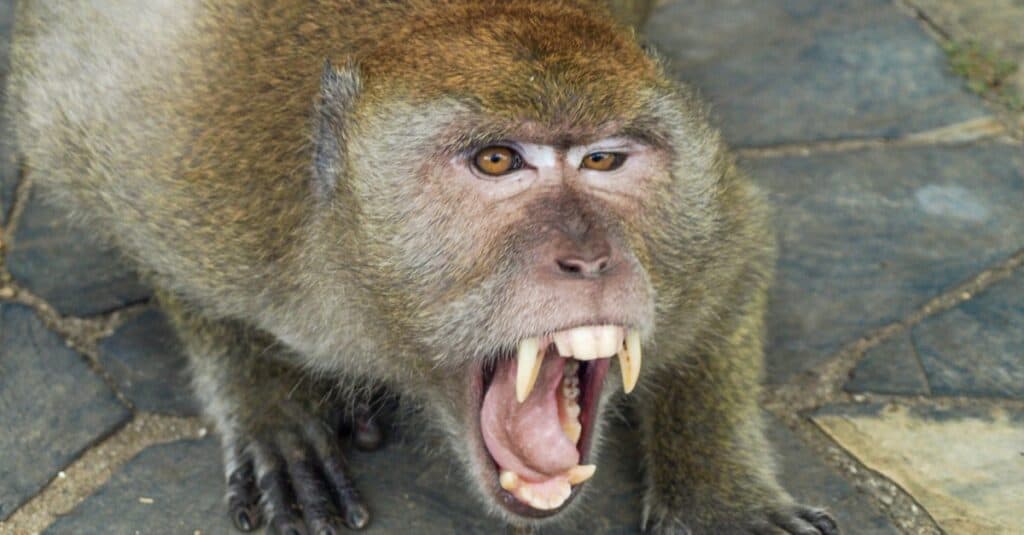
Are monkeys dangerous? Monkeys are
wild animals
so they can definitely be dangerous to people, other monkeys, and other animals.
©iStock.com/JicKaro
Wild monkeys will usually try their best to avoid people. However, they become accustomed to people feeding them. Consequently, most wild monkey attacks occur when they think people have food. So, monkeys will try to steal food from people. If people try to prevent this, the monkey may bite them. The monkey can become aggressive between trying to get at the food and people trying to avoid this happening. Aggression can escalate, leading to increased chances of injuries and human-monkey conflict.
The likelihood of aggressive behavior between the victim and the offender is high when looking for food from people. For example, monkeys can start showing their teeth, putting their weight on their hind legs, or threatening people by showing the whites of their eyes. Likewise, the monkey will feel threatened when people respond with aggressive facial expressions. This behavior can worsen the situation and increase the likelihood of an attack.
Monkeys living near people are also typically more confident approaching them, leading to house break-ins. The way to avoid this is to monkey-proof all windows, doors, and even trashcans. In addition, people should never feed monkeys, and it is best to avoid those that approach you for food. This aggressive behavior is why zoos and other organizations warn against people feeding wild animals.
Fighting for Dominance Can Make Monkeys Dangerous
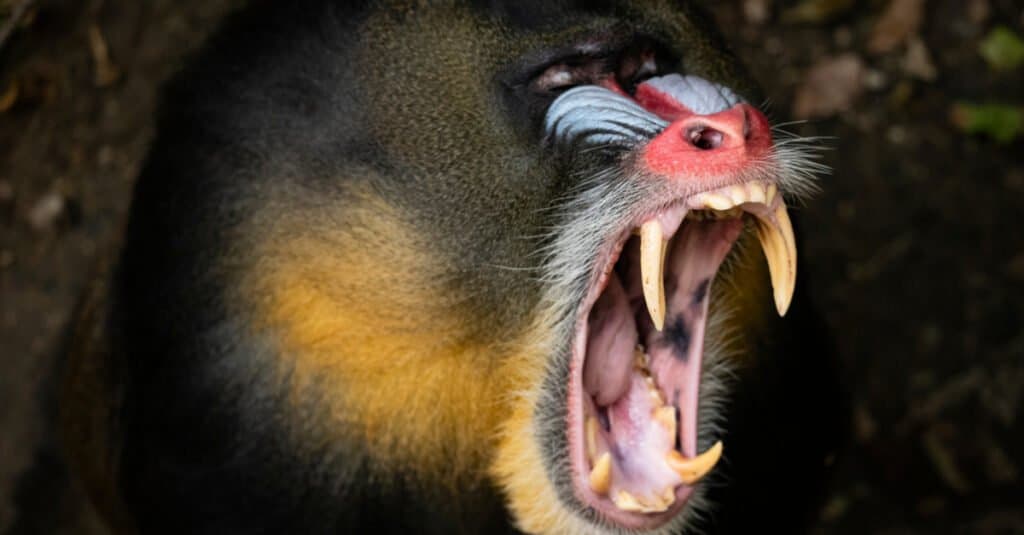
Fighting for dominance can make a monkey angry.
©Maciej Kopaniecki/Shutterstock.com
Monkeys reach sexual maturity at a relatively young age compared to their human counterparts. Sexual maturation can cause wild and pet monkeys to start displaying dominant behavior. When the monkey realizes it can’t dominate its human family members, it will often attack them. This response happens especially with the monkey’s favorite person.
Monkeys are playful and charming by nature and have very sharp senses, so they can use this strength to their advantage. Unfortunately, many people underestimate a monkey’s intelligence and power. As a result, they tend to judge them with bias, seeing only the playful side. This misjudgment can lead to severe injury and even death, often leading to pet owners euthanizing the monkey.
Most people and animals are fascinated by monkeys. People treat them as playthings and often pay a significant amount for them. Unfortunately, when monkeys become sexually mature, they also become challenging to manage. They are quick to react aggressively, which is no longer fun for their owners. So, if you intend to buy a monkey as a pet, understand that pet monkeys can also be dangerous. Educate yourself before taking on this enormous responsibility, as monkeys are living creatures deserving of quality life.
Monkeys Are Dangerous When Frustrated
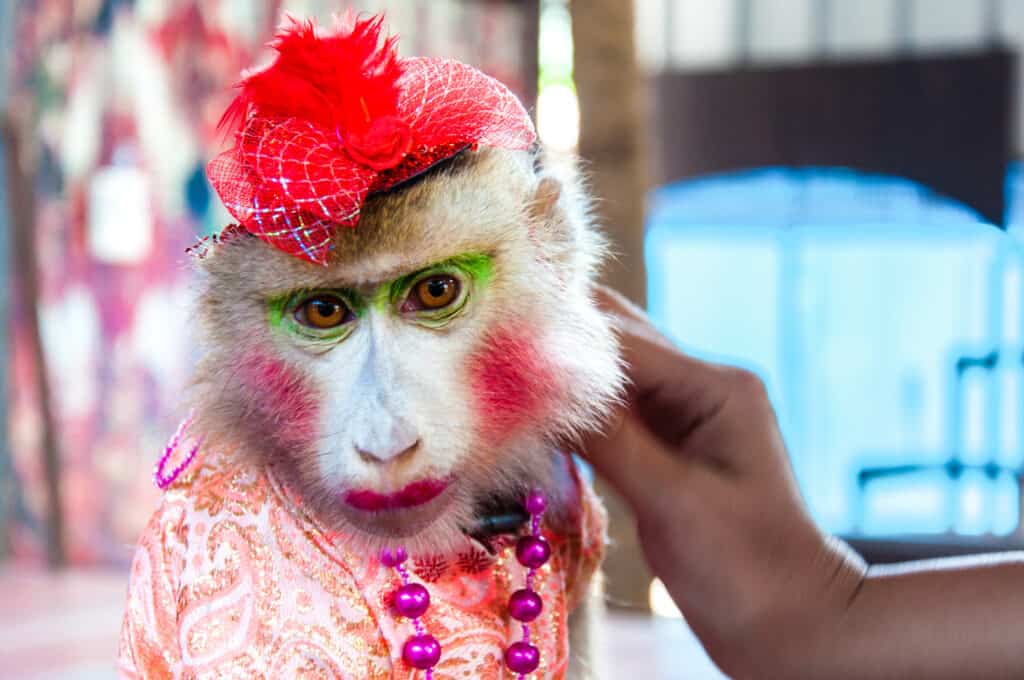
Are pet monkeys dangerous? Yes. Unfortunately, even pet monkeys can be dangerous.
©iStock.com/stanciuc
Monkeys are intelligent animals. Confining them without mental stimulation or social interaction from their monkey counterparts or owners is cruel. Isolating these intelligent creatures leads to frustration, causing them to attack other monkeys, pets, and people. Frustration in monkeys can lead to outbursts of rage, anxiety, and other serious ailments.
If monkeys experience neglect, they are known to bite people, smash themselves against walls, and harm themselves in different ways. They will also destroy their cages out of sheer frustration. Aggressive behavior results in monkeys becoming dangerous because of isolation, lack of social contact, boredom, and stress.
Pet owners or keepers must provide monkeys with mental stimulation for their well-being. Games, social interaction, and monkey and human or pet bonding are all critical to their mental health. The monkeys will become frustrated if pet owners or guardians do not give them what they need. Unfortunately, they express this frustration by becoming aggressive and ultimately dangerous. The end result often leads to the monkey losing its life, which is avoidable if owners take their responsibility seriously.
Social Bonds and Danger
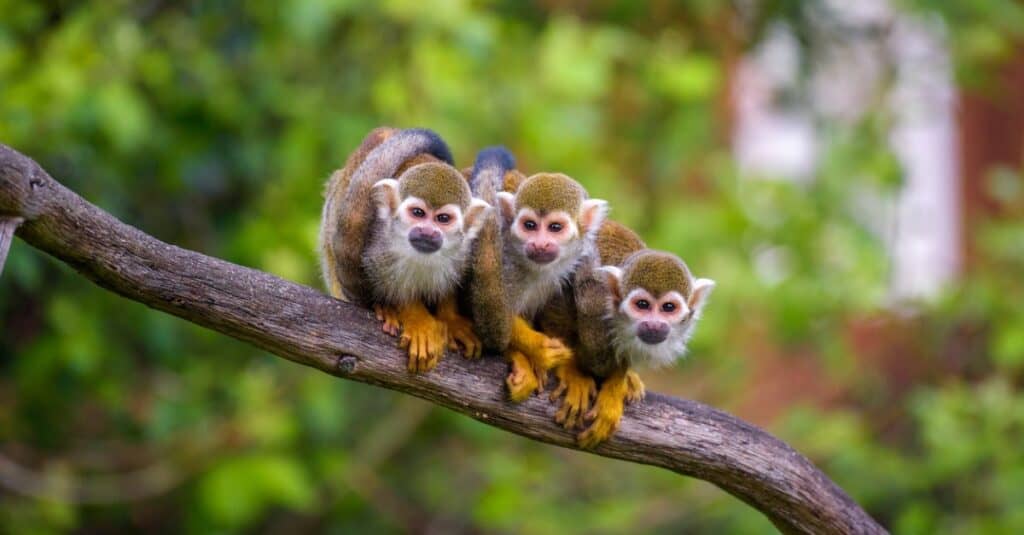
Monkeys are
social animals
that tend to bond closely with their fellow troop members.
©iStock.com/miroslav_1
Monkeys are social animals that tend to bond closely with their fellow troop members. In the absence of other monkeys, they cultivate connections with their human caretakers. But a lack of proper monkey friendships may lead to dominance, and this dominance may, in turn, lead to aggression.
Social bonds are as crucial in primate societies as in the human world. Suppose there is an absence of social bonds in a monkey’s life. In that case, the situation can cause high-ranking monkeys to become violent toward their subordinates. The outcome is often the injury or death of the subordinate monkey.
Social bonds are essential because they help monkeys understand where they fit in the troop’s social structure. For example, if a monkey doesn’t understand its rank and boundaries, this will cause problems.
So, following an injury or lesson about social ranking, the errant monkey may adapt to its subordinate position if still alive. However, if it is not flexible, it may lose its life in the wild as the troop’s dominant members will probably kill it. Otherwise, if it is a pet monkey, it may become dangerous and have to be put down if it does not submit to its owner’s dominant position.
Monkeys Aren’t Naturally Aggressive
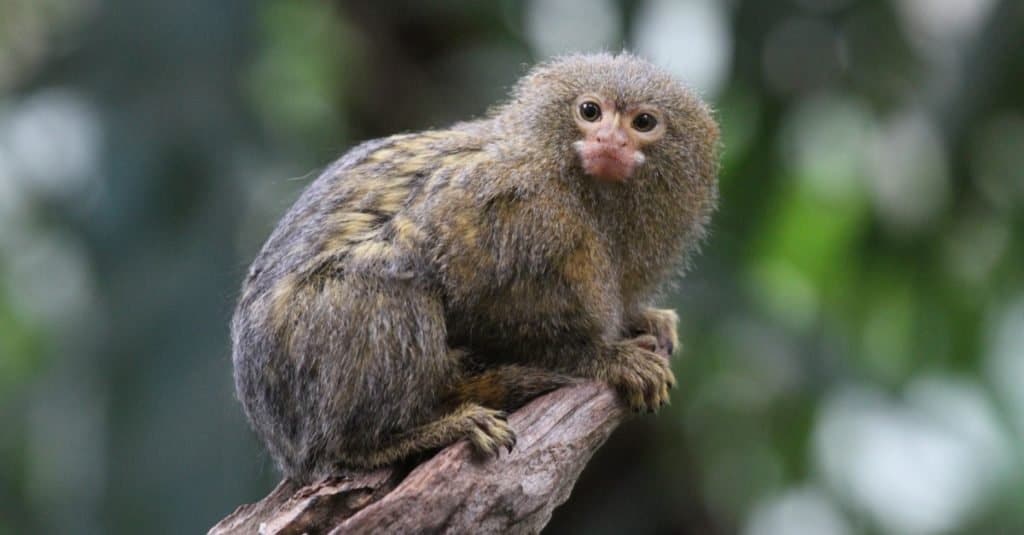
Monkeys are not naturally aggressive but will become dangerous if their needs are not met.
©Mihai Ivascu/Shutterstock.com
Most monkeys are not naturally aggressive, but poor handling can trigger aggression towards the handler. Healthy male monkeys, however, often show a pronounced tendency towards aggressive behavior. This conduct is possibly due to hormones and natural male instincts.
Monkeys are wild animals and will never be fully domesticated. Therefore, passive forms of aggression, such as fear and avoidance, may be more effective in subduing a wild animal than violent assault. Still, monkeys will often choose to attack rather than avoid confrontation. Unfortunately, this behavior can motivate abuse or euthanasia.
Also, monkeys are often fierce and territorial in the wild, with a well-developed fear of people. The dominant male sometimes resorts to violence when in conflict with other males but mostly avoids contact with humans. Using tools and punishment, people can control many wild animals, but this isn’t always possible with monkeys.
Up Next
Explore the following links for more fascinating facts about the wonderful world of monkeys:
Thank you for reading! Have some feedback for us? Contact the AZ Animals editorial team.

